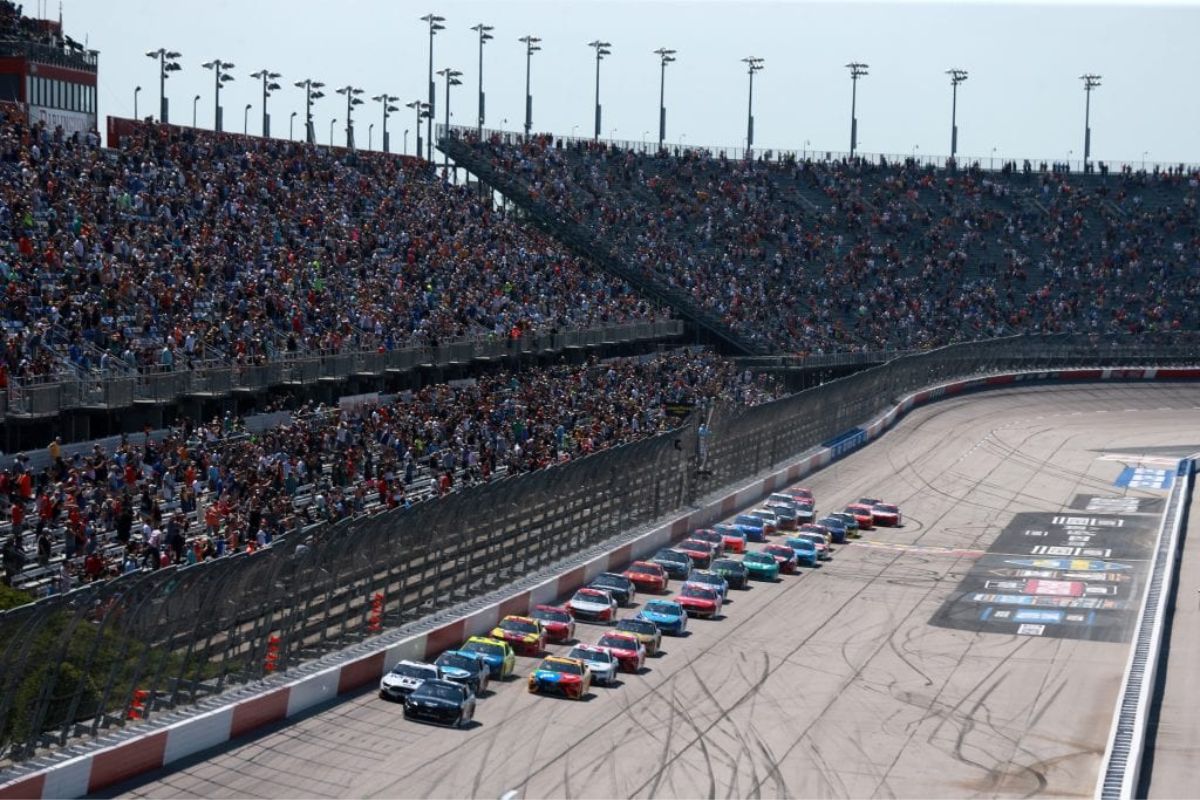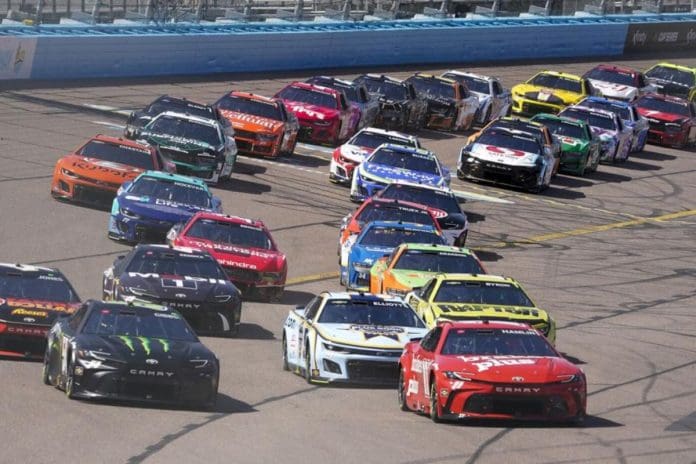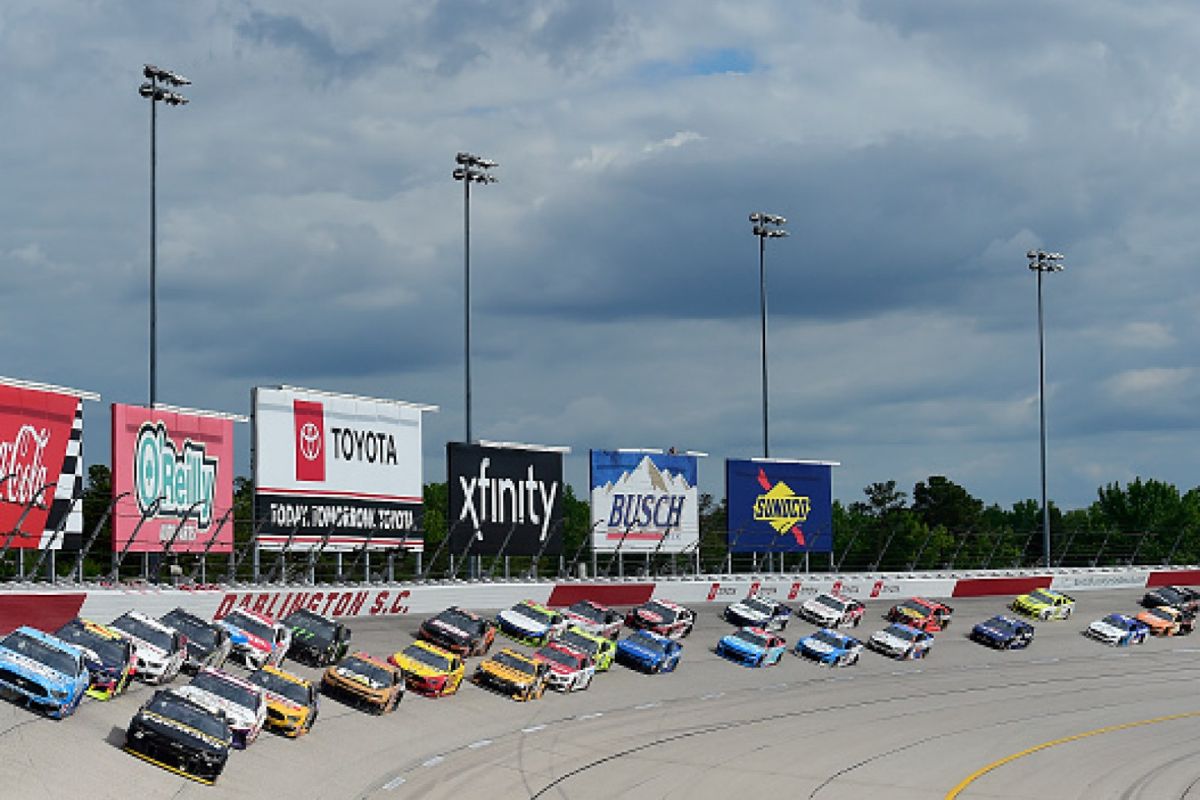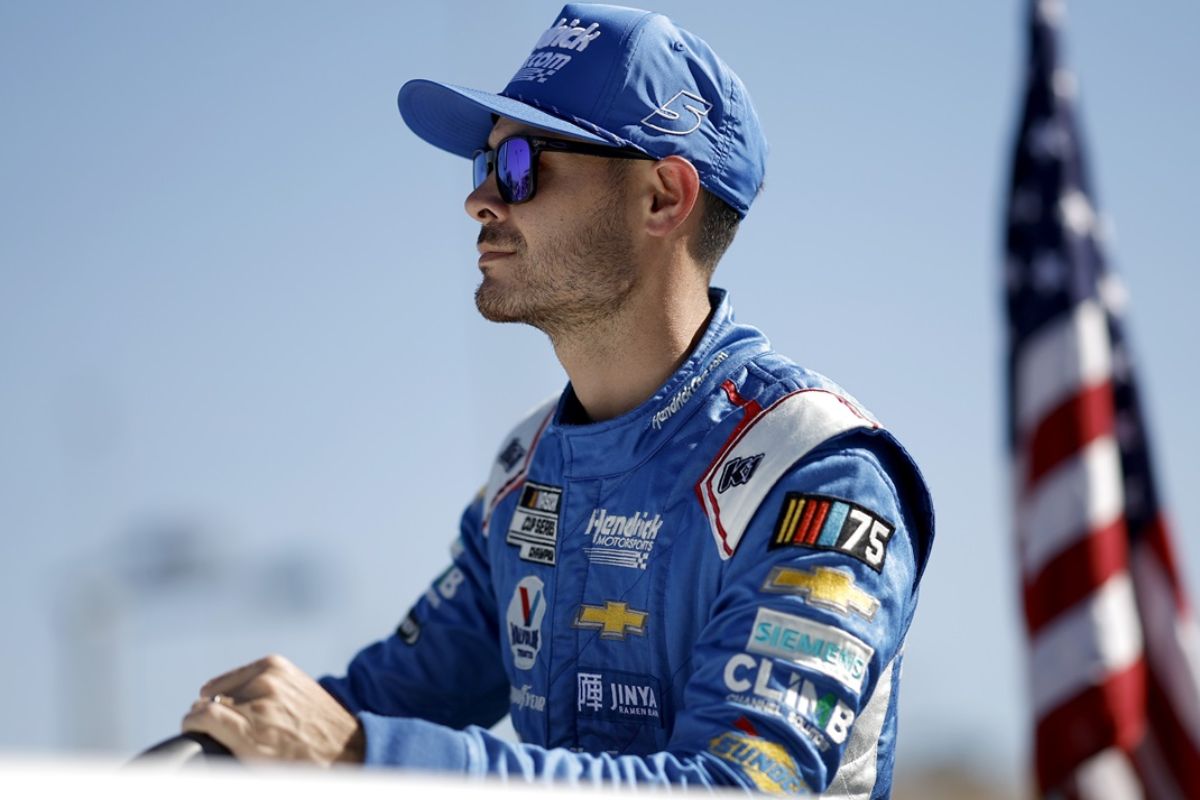Fans React to RFK Racing’s Allegations: In the aftermath of the contentious Kansas Speedway event, RFK Racing‘s allegations have not only dominated the headlines but also stirred a significant mix of reactions among NASCAR fans. Many have voiced concerns over the integrity of the sport, scrutinizing the team’s claims with a blend of skepticism and disappointment. This incident, ripe with accusations and calls for transparency, serves as a crucial moment that might redefine team accountability within the sport.
Key Takeaways
- Fans criticized RFK Racing for not accepting defeat gracefully, questioning their sportsmanship.
- Many defended Kyle Larson, praising his dignified response to the controversy.
- Discussions on social media highlighted the need for transparency and fairness in race adjudication.
- Technical explanations about NASCAR rules were shared to clarify misconceptions regarding race outcomes.
- The controversy sparked deeper fan engagement in analyzing and understanding the nuances of NASCAR races.
RFK Racing’s Post-Kansas Speedway Controversy
In the aftermath of the Kansas Speedway event, RFK Racing sparked significant controversy with a cryptic tweet that cast doubt on the legitimacy of Kyle Larson’s victory. The incident not only heightened tensions within the NASCAR community but also raised crucial questions about sportsmanship and the integrity of competitive racing.
While Chris Buescher and his crew chief Scott Gavin outwardly appeared to accept the race’s outcome, the ambiguous nature of the team’s social media response introduced a layer of skepticism. This act was not in isolation; rather, it echoed a broader narrative in sports where the convergence of competitive rivalry and instantaneous digital communication often leads to controversial exchanges. The tweet suggested an undercurrent of dissatisfaction or disbelief regarding the decisions made during the race’s critical moments, which could be interpreted as a challenge to the fairness of the adjudication processes or possibly the performance of Larson himself.
The cryptic message from RFK Racing, therefore, might have been a strategic risky move to spotlight their concerns or grievances which they felt were overlooked during the heated moments of the race. This type of communication can influence public perception and potentially sway official scrutiny, but it also risks breeding discord and mistrust among teams and fans alike.

RFK Racing’s Cryptic Tweet
The cryptic tweet from RFK Racing, featuring a subtly uneven paint job on the start-finish line at Kansas Speedway, has ignited widespread speculation and debate within the NASCAR community about the underlying implications for the race’s integrity. This seemingly innocuous detail, captured and broadcasted by the team, suggests a deeper discourse on the conditions and fairness of competitive racing environments.
Just gonna leave this right here… pic.twitter.com/wqffwQnhOa
— RFK Racing (@RFKracing) May 6, 2024
- Significance in Messaging: The choice to highlight an uneven paint job without explicit commentary invites observers to draw their own inferences, potentially questioning the meticulousness of race setup and management.
- Implications for Race Outcomes: Unevenness at significant track markings might influence race results, especially in tight finishes where precise boundary definitions are critical.
- Historical Context: This is not the initial instance of teams using social media to highlight concerns indirectly. Such tactics are part of a broader strategy to communicate with governing bodies and the public without direct confrontation.
- Regulatory Scrutiny: The tweet could prompt NASCAR officials to reevaluate their procedures for track preparation and maintenance, ensuring integrity at every aspect of the competition.
- Fan Engagement and Speculation: Engaging fans through cryptic messages keeps the audience invested and talking, which can be a strategic move to maintain viewer interest in the team and the sport.
Fan Reaction to RFK Racing’s Post
RFK Racing’s recent tweet has sparked a fiery debate among NASCAR fans, many of whom have voiced their discontent, labeling the team as sore losers following the photographic evidence that supported Larson’s win. The backlash is not only a reflection of the fans’ allegiance to the fairness of sportsmanship but also highlights a deeper competitive ethos ingrained within the NASCAR community. Fans, utilizing social media platforms, dissected the incident with a precision that mirrors professional analysis, pointing out discrepancies in RFK Racing’s claims versus the documented outcomes of the race.
“Don’t be a sore loser. A lot of people weren’t mad when we thought you won. Not even Larson.”
The sooner you turn the page, the better”.
I’m just happy Larson finally rubbed to win. He has lost so many races trying to race clean when others took him out. Nice to see a fighting streak.” – fans reaction
The sentiment across different forums and comment sections has been overwhelmingly critical of RFK Racing’s stance. This critical mass of opinion suggests a communal intolerance for what is perceived as an inability to accept defeat gracefully.
Kyle Larson’s Response
Kyle Larson’s dignified response to the controversy highlighted his sportsmanship, as he expressed admiration for Chris Buescher’s abilities and acknowledged the overwhelming support from fans who defended the legitimacy of his victory. His reaction not only showed his grace under stress but also reinforced the values of fair competition and mutual respect among competitors in NASCAR.
“I think I respect the heck out of his talent. So I think, you know, I think if I would have finished, say he won, and I finished second, like I was still happy.” – larson
Larson’s approach to handling the situation was multifaceted, emphasizing both personal integrity and appreciation for his supporters. By openly commending Buescher, Larson demonstrated a commendable level of professional admiration, which is vital in maintaining a supportive and respectful environment in competitive sports.
- Respect for Competitors: By praising Buescher, Larson highlighted the importance of recognizing and respecting one’s competitors, which is crucial for the sport’s integrity.
- Fan Engagement: Larson’s acknowledgment of fan support shows his appreciation for the community that backs him, reflecting the symbiotic relationship between athletes and their supporters.
- Sportsmanship: His response serves as an example of good sportsmanship, focusing on positivity and respect rather than conflict.
Technical Aspect
Understanding NASCAR’s technical regulations is vital, as evidenced by a fan’s detailed video explanation that clarifies how race winners are determined, moving beyond the commonly misunderstood reliance on the start-finish line. This precise articulation highlights the complexity of NASCAR’s race adjudication system, which includes a multifaceted set of sensors and timing mechanisms.
In response to recent events, another fan suggested that RFK Racing should adopt a forward-thinking approach. This involves harnessing the lessons from Kansas tri-oval track, focusing on strategic improvements rather than dwelling on past controversies. Such advice not only promotes resilience but also aligns with the principles of competitive sportsmanship.
News in Brief: Fans React to RFK Racing’s Allegations
The controversy surrounding RFK Racing’s conduct post-Kansas Speedway serves as a critical moment for NASCAR and its constituents. The response from fans highlights the community’s commitment to principles of sportsmanship and integrity. The widespread call for transparency and accountability from RFK Racing emphasizes the necessity for clear communication and ethical behavior in professional sports.
This incident not only showcases the passionate engagement of NASCAR fans but also prompts a broader reflection on the values upheld within competitive sports dynamics.
ALSO READ: NASCAR Fans Predict Chris Buescher’s Heel Turn After Hamlin’s Drama




